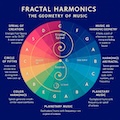As a former monastic with roots in both Zen and Vipassana I've been following this subreddit for over a year now.
It's clear that many people here are kind, sincere, and genuinely trying to support one another. But I’ve noticed a recurring pattern that I feel is worth addressing - especially for those who come to meditation from a place of deep suffering or confusion.
The core issue
Meditation, when practiced well, can dramatically reduce suffering and lead to deep permanent transformation. That is not abstract or hypothetical - it's something widely attested across major traditions.
But often, people confidently repeat high level teachings like "there's nothing to achieve" or "you are already enlightened." While these phrases point to something real at advanced stages, they’re frequently shared out of context by people who haven’t done the deeper work let alone embody what it means.
Two common patterns I see:
1. The "already enlightened" poster. This type is common online:
- Drops non-dual one-liners like "just be" or "you are awareness."
- Deflects sincere questions with phrases like "you’re still in the mind" or "you just don’t get it yet".
- Avoids discussing their own lineage or practice.
- Acts as if they are beyond path, method, or effort.
- Fails to meet OP (and others) where they are.
This approach may sound deep, but it often leaves people more confused than helped. It offers no map, no tools, no support - it is just poetry and abstractions.
2. Those at "first-peace plateau". This one’s common but subtler online because they’re often genuinely kind and well-meaning but their claims are often unfalsifiable in nature:
- They speak from a place of early calm, more awareness, less reactivity.
- They reference non-dual traditions like Dzogchen, Zen, or Advaita, but haven’t deeply embodied them.
- They conflate their current state of peace with the end of the path.
- They say things like "drop striving," "effortless awareness", or "no path".
- They often resist the discipline or intensity required for deeper transformation.
They’re not trying to mislead but when early-stage insight is mistaken for completion, it can derail those who are genuinely seeking deeper healing, liberation, methods and direction.
What deep practice actually brings
Real spiritual transformation is not just a calmer day. It leads to fundamental shifts in perception and experience:
- Time, space, body, and self are seen in radically new ways.
- The sense of a fixed identity loosens or dissolves permanently.
- Suffering decreases substantially and sustainably
This isn’t automatic and it does not come from simply understanding non-duality intellectually. It usually requires consistent and sincere practice and a method that works for your specific mind.
A simple reality check
Ask yourself:
- Has your daily suffering decreased dramatically and stayed that way over 1+ years even if you stop sitting?
- Has your sense of identity fundamentally shifted at a trait level?
- Has your perception of reality changed radically?
If no, that’s totally fine and it just means there is still path ahead and walking it is absolutely worth it. But it also means there’s more territory you haven’t seen yet.
A Closing thought
This post is for those who come to meditation from pain, trauma, or existential confusion. Telling them "there’s nothing to do" before they’ve experienced real basic relief is confusing at best and misleading at worst.
There’s nothing wrong with being in the early stages of practice. You can spend years or even decades growing in those spaces. But let’s be honest about where we are. Let’s not confuse glimpses for completion, or the starting line for the finish line.
And most importantly: let’s not rob others of the chance for real freedom, by handing them slogans when they need tools.
Helping without confusing
- Establish basic practice
- Cultivate core skills (attention, clarity, equanimity)
- Normalize common stages (early calm, fear spikes, energy shifts)
- Point to good sources (quality books, talks, and teachers)
[link] [comments]






 English (US) ·
English (US) ·